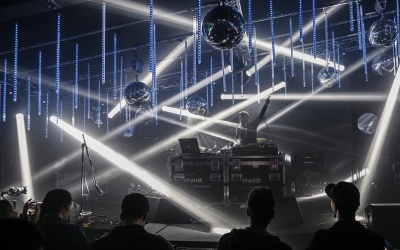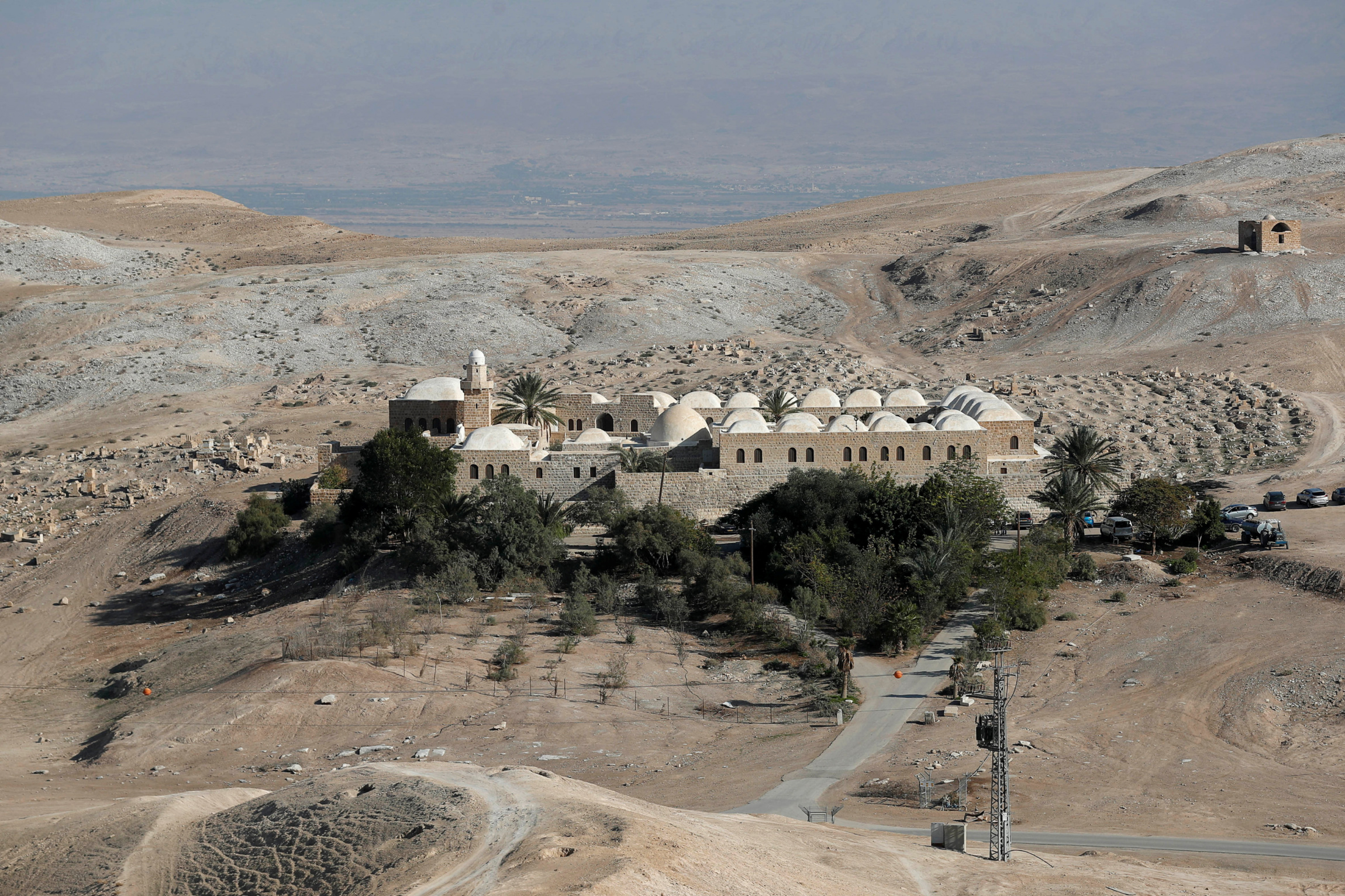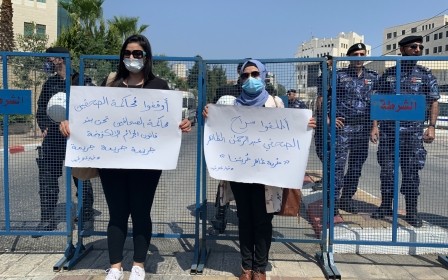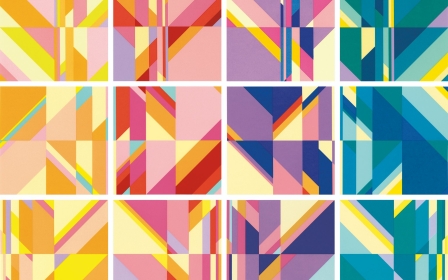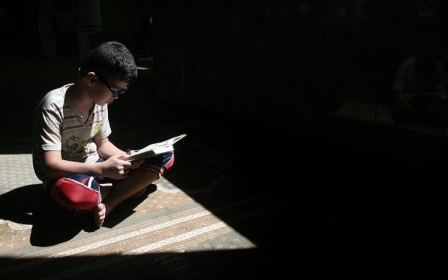A rave, a DJ and a debate: Palestinians outraged over techno party at holy site
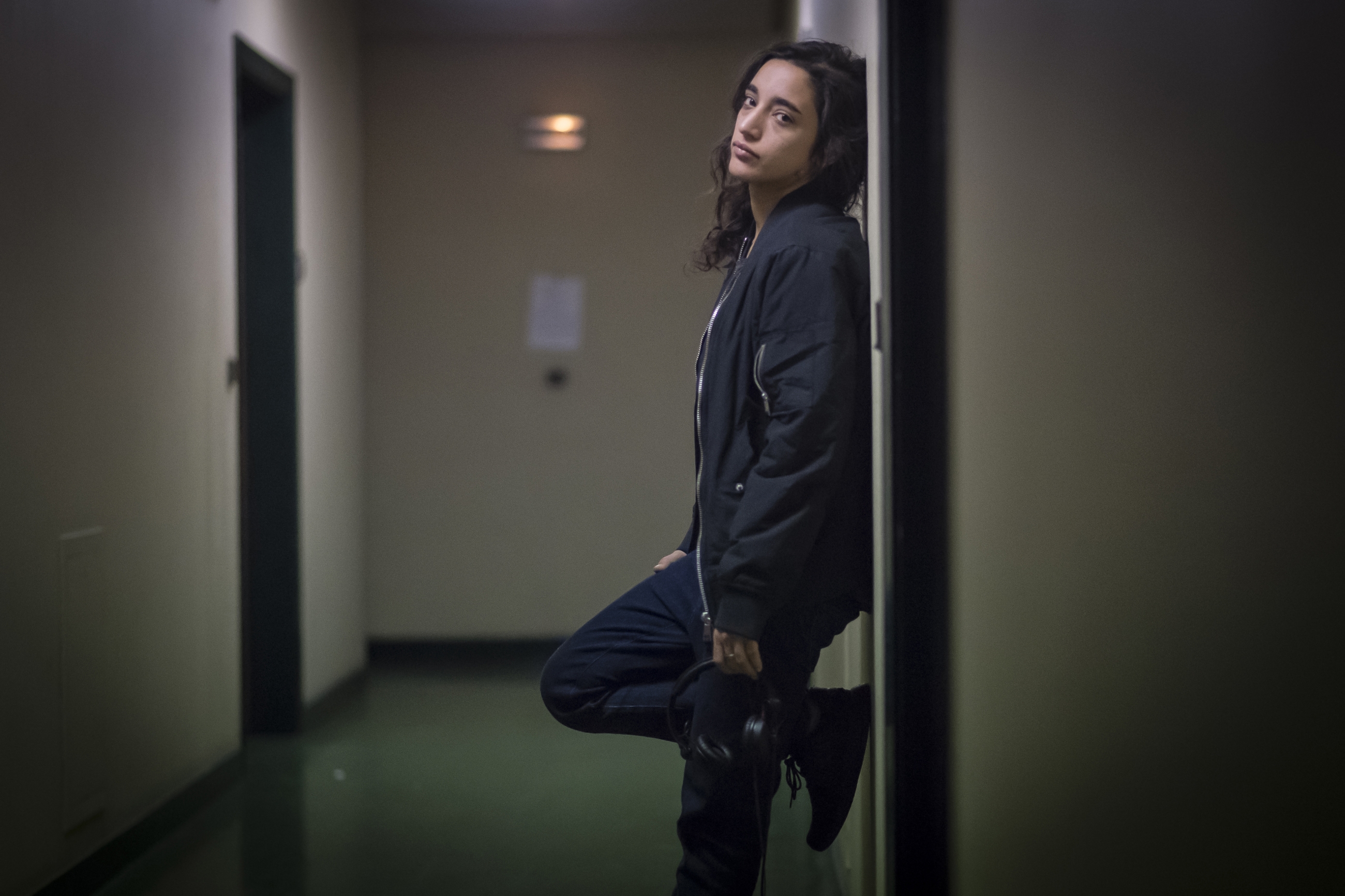
A dance party on Saturday has caused controversy within Palestinian society, stirring up a heated debate on culture and religion. The uproar came after videos surfaced of partygoers drinking and dancing inside the ancient Muslim holy site of Nabi Musa, believed under Islamic tradition to be the burial place of Moses, in the occupied West Bank.
One video went viral, showing a group of young Palestinian men and women dancing under flashing lights to blasting techno music inside an ancient building at Nabi Musa, located between Jericho and Jerusalem.
Palestinian security forces have arrested popular Palestinian DJ Sama Abdulhadi in Ramallah for playing at the Christmas rave party in Nebi Musa Mosque.
— Adam Milstein (@AdamMilstein) December 28, 2020
This comes after the event was allegedly approved by the Palestinian ministry of tourism
pic.twitter.com/ilfloi5WFK
New MEE newsletter: Jerusalem Dispatch
Sign up to get the latest insights and analysis on Israel-Palestine, alongside Turkey Unpacked and other MEE newsletters
Another video showed a group of young men breaking up the party and yelling "Outside! Now! Get out!" at the partygoers, to which one reveller responded that they had permission from the Palestinian Ministry of Tourism to be there.
Despite this, the young men continued dispersing partygoers and confronted the party's internationally renowned DJ, Sama Abdulhadi - considered to be Palestine's first female professional DJ - who was filming a set at the site.
Abdulhadi can be heard pleading with the men as they approached her, telling them: "We're sorry, we're sorry, we are leaving. I swear we are leaving."
شبان من القدس تفاجئوا بوجود حفل ماجن و خمور و رقص داخل مسجد و مقام النبي موسى في مدينة أريحا وقاموا بطرد الحاضرين من المكان ومهاجمتهم، فيما زعم من كانوا في المكان أن لديهم تصريح من وزارة السياحة لإقامة هذا الإحتفال في المسجد ! pic.twitter.com/api7IxExmy
— ᴬ 𓂆🇵🇸(المنشن 🚫) (@_Abood_Emad_) December 26, 2020
On Monday, PA forces arrested Abdulhadi and detained her for questioning, although officials did not make it clear under what charges she was being held. On Tuesday, a judge decided to extend her detention for 15 days.
‘Immoral’ and 'disrespectful'
The video has caused uproar among many Palestinians, who viewed the party as an affront to Islam, and a "desecration" of the holy site. Palestinian worshippers descended upon Nabi Musa the next day and staged a demonstration, praying at the site's mosque and condemning the party as "immoral" and "disrespectful".
Meanwhile, an outpouring of solidarity from Palestinians and foreigners emerged on social media in defence of Abdulhadi, while a petition calling for her release has been signed by thousands of fans and supporters.
In the days since the party, videos of Palestinians expressing their outrage have flooded Twitter, TikTok and Facebook, with demands for the partygoers, organisers and those within the government who gave them permission to be held responsible.
"What happened in Nabi Musa is quite shocking to us as Palestinians and is something we cannot accept," Alaa al-Daya, a 23-year-old student from Jerusalem told Middle East Eye.
"To have this kind of party in a place that holds so much religious and cultural significance for people is wrong, I think," she said.
Daya added that the concept of rave parties was not widely accepted among much of the Palestinian community, especially right outside an ancient mosque.
She also said that partygoers and organisers had argued that the event was designed to celebrate and preserve Palestinian culture.
"But I disagree. Partying and drinking is not something that is shared by all Palestinians. There are other ways to celebrate and protect our culture," she said.
"If it was a dabke [a traditional Arab dance] festival or traditional Palestinian music festival, people might not have had as much of a problem."
However, Abdulhadi's uncle, Samir Halileh, said that his niece was filming a video and had to create an impression of the atmosphere that fits with techno music, adding that rumours about the presence of drugs were not true.
Contradictory claims
Officials in the Palestinian Authority swiftly and repeatedly denied the claims that the Ministry of Tourism had issued a permit for the event. The Ministry of Religious Affairs and the tourism ministry had initially also claimed not having had any knowledge of the event.
'They arrested her just to show they took action against the party. Sama should not be in jail. The one who gave permission for the party should be'
- Alaa al-Daya, student
On Wednesday, however, the director of museums at the Ministry of Tourism, Osama Estetia, said that when they had received the request to film at the site to promote it online, they had not been aware of the type of music that would be played.
"The employee who received the request responded with a set of conditions, which were: compliance with the site's instructions, adherence to public safety procedures and respect for the religious importance and privacy of the shrine," Estetia said in an interview with Watan TV.
Estetia denied responsibility for what had happened, saying that the ministry had asked the organisers to coordinate with the Jericho governorate because the ministry was not responsible for managing the site itself.
He said that the organisers were the ones who suggested the location, a claim contradicted by the head of the Palestinian Independent Commission for Human Rights, Ammar Dweik, who said it was the other way around.
Prime Minister Mohammad Shtayyeh announced that he was assembling an "investigation committee" to find out what had happened and why the party was held at Nabi Musa in the first place.
Mahmoud al-Habbash, President Mahmoud Abbas's adviser on religious affairs, released a statement saying that he felt "disgust and rage about what happened at the Nabi Musa mosque".
"I do not know yet who is responsible for this sin, but whoever it is will receive a punishment to fit the atrocity of what was committed. A mosque is a house of God - its sanctity is the sanctity of religion itself," Habbash said.
'Sama is being scapegoated'
Abdulhadi's uncle insisted that the event was carried out with the approval of the ministry and that the problem lay in the definition of the site itself, and whether it was a sacred religious place or a tourist site, which holds an inn, open squares and a mosque.
"It is clear that Sama fell victim to this dispute over the definition of the place, and we do not tolerate provoking religious feelings or defiling a sacred place, and the dispute over the nature of the place must be settled by the government."
Halileh said that his niece, who had been ready to cooperate, must be released and the investigation should be duly carried out.
"The whole place is 5,000 sq m and the mosque is 60 sq m. We have made sure with the tourism [ministry] that it was possible to hold a party in the place," he told Al-Watan TV.
"They told us that the site has large yards and tourists have access to it."
A petition to release Abdulhadi began circulating shortly after her arrest, with more than 46,300 signatures as of Wednesday afternoon. It read that following the incident at Nabi Musa, there ensued "a vicious campaign of misinformation on social media which fuelled violent reactions and personal attacks against Sama".
The petition also insisted that the organisers did in fact receive written permission from the Ministry of Tourism, which controls the site, and that the party took place in the "bazaar" area of the site, not the mosque.
"The ministry was aware of the type of music that will be played at the concert - techno - and that this concert will be filmed in this archaeological site... to promote Palestinian heritage sites and Palestinian techno music among music audiences around the world."
"Sama Abdulhadi and the organisers of the concert may not have realised that this type of music was unsuitable for the site and its historical, religious and cultural associations. Yet it remains that the Ministry of Tourism bears full responsibility for taking the decision to allow the concert to take place," the petition said.
Among the signatories of the petition was Palestinian-American lawyer and activist Noura Erakat, who said in a post on Facebook that she had signed the petition because "she [Sama] is being scapegoated by the Palestinian Authority".
Daya, the young student, said that while the organisers should have known better, Sama should not have been arrested and that the real responsibility lay with the government.
"It is clear the government is now trying to save face and put the responsibility on someone else because they saw how bad a reaction the whole thing got," she said.
"They arrested her just to show they took action against the party. Sama should not be in jail. The one who gave permission for the party should be."
This article is available in French on Middle East Eye French edition.
Middle East Eye delivers independent and unrivalled coverage and analysis of the Middle East, North Africa and beyond. To learn more about republishing this content and the associated fees, please fill out this form. More about MEE can be found here.


